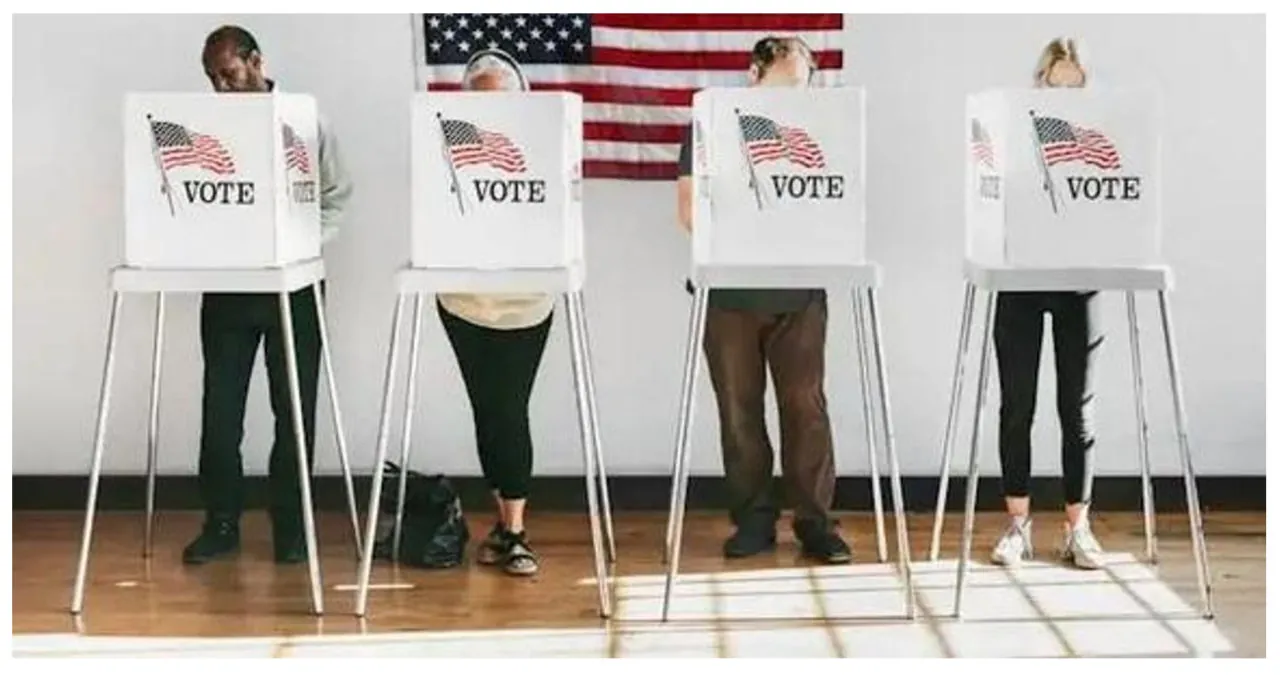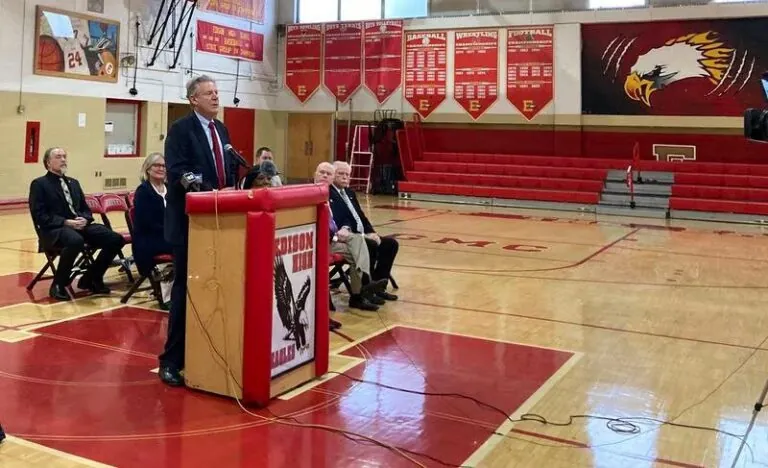Voter suppression or election integrity? In 2023, Florida will have 1 million fewer voters
Since last year, Florida’s active voter rolls have seen a significant decline, with nearly 1 million registered voters being removed. The majority of these removed voters are Democrats and those with no party affiliation (NPA), making up 90 percent of the total.
According to data gathered by the Florida Division of Elections, the number of registered active voters in the state has decreased from 14,536,811 to 13,540,135 as of December 1. This represents a reduction of 996,676 voters, bringing the total number of active registered voters back to the same level as in 2019. Interestingly, this decline in voter registration comes despite Florida being recognized as the fastest-growing state in the United States, with an estimated population of 22.2 million as of July 1, 2022.
The decrease in voter registrations can be attributed to the implementation of Senate Bill 7050 this year. This legislation, spearheaded by Republicans, included stricter rules for voter list maintenance. Critics were concerned that these changes could result in the wrongful purging of voter registrations. The responsibility of maintaining these lists falls on the county supervisors of elections.
According to voter records, the three most populous counties in South Florida have experienced a decline in active voter status. In Miami-Dade, a total of 85,640 voters were moved from active to inactive status, with the majority (90.75 percent) being Democrats and NPAs. Similarly, in Broward County, 190,876 voters were moved to inactive status, with 84.24 percent being Democrats and NPAs. In Palm Beach County, the active voter rolls saw a reduction of 156,148 voters, with 82.75 percent of them being registered Democrats or NPAs.
Florida’s Secretary of State, Cord Byrd, was not able to provide a comment on the matter. However, Mark Ard, the director of external affairs at the department, stated that Supervisors of Elections conduct list maintenance after each election cycle to ensure the accuracy and currency of voter rolls. According to section 98.065 F.S., they are obligated to send notifications to voters who have not participated in the last two election cycles, among other reasons.
Furthermore, Florida has implemented significant election reforms in recent years. Notably, Senate Bill 7050 introduced some crucial amendments to the state’s voter registration list maintenance, which have played a vital role in enhancing election integrity in Florida.
Election Integrity: Is the System Secure?
The idea of “election integrity” has recently become a topic of debate, with Republican presidential candidate Governor Ron DeSantis taking the lead. However, some Democrats argue that these efforts are actually aimed at suppressing voter turnout, especially among minority communities.
The inclusion of third-party voter registration was one of the most contentious amendments in the SB 7050 package. Shortly after Governor DeSantis signed the bill into law, the League of Women Voters of Florida filed a lawsuit in federal court in Tallahassee. The organization sought to challenge what it deemed as “excessive limitations” on voter registration efforts. The League argued that the changes were overly broad, lacking clarity, and infringed upon individuals’ rights to free speech and association. They expressed concerns that these new measures would impede their voter registration initiatives.
The League expressed concerns about the new regulations, highlighting restrictions on voter registration, added administrative requirements such as re-registering with the state before each election cycle, and substantial increases in fines for any violations.
The league’s lawsuit, filed in August, has been consolidated with a similar suit brought by the Hispanic Federation and other groups. The consolidated lawsuit is still pending.
Voter list maintenance ensures that voter records are up to date and accurate by identifying changes in residence and eligibility, including cases of death or other valid reasons. If a voter has not participated in the past two general elections, their status can transition from active to inactive. However, if these voters fail to update their registration, request a mail-in ballot, or vote again, they may become ineligible and may be removed from the statewide voter registration file. To regain active voter status, they will need to re-register.
Supervisors send out different forms in an attempt to reach inactive voters. Initially, they send a non-forwardable form, which the Post Office will return if it is undeliverable, along with any forwarding information. After receiving updates from third-party sources about voters who have moved within the state, supervisors then send out address-change notices. If voters do not respond to these notices and fail to take action even after receiving a follow-up letter or legal notice, they are ultimately removed from the voter file.
New Requirements
The following are the updated requirements for the project:
Supervisors send final notices to voters who have either moved out of state or who haven’t voted or updated their registrations in the past two general elections.
County election chiefs must now conduct annual reviews of voter registrations by April 1 to identify individuals who are not registered at a legal residence and take steps to remove them. The new list maintenance requirements also include deadlines for supervisors to make final determinations of voters’ eligibility, thereby expediting the removal process.
According to Broward Supervisor of Elections Joe Scott, a Democrat, he disagrees with the notion that the decline of one million voters in Florida’s voter rolls is due to voter suppression. Despite the claims made on social media, Scott believes there are other factors at play.
“I don’t usually entertain conspiracy theories, and that’s not what I believe. However, I do think that the bill has made it more challenging for individuals to register to vote while making it easier for them to be removed from the voter list. This is a fact, and it’s the reason why I opposed it,” Scott expressed. “Now that the bill has been passed, people are asking me how bad it really is. My response, and something I’ve emphasized to many state leaders who have reached out to me, is to imagine someone who didn’t vote in the 2020 election. Are they truly losing anything? Will this person actually show up to vote in 2024?”
According to Scott, the system operates in a way that will result in the revocation of numerous registrations next year. He explains that in odd-numbered years like the upcoming one, a significant number of individuals will be moved to an inactive status. On the other hand, in even-numbered years, a large group of people will be deemed ineligible. Once they are classified as ineligible, they are effectively removed from the rolls. Scott further clarifies that in the previous year, the majority of individuals who were moved to the ineligible category had initially become inactive in 2019.
The Expensive Nature of List Maintenance
List maintenance can be a costly endeavor for businesses. The expenses associated with managing and updating lists can quickly add up, impacting the overall budget. Maintaining accurate and up-to-date lists is crucial for effective marketing and communication efforts. However, the financial burden of list maintenance cannot be ignored.
Businesses must allocate resources to update and cleanse their lists regularly. This process involves removing duplicates, correcting errors, and verifying contact information. These tasks often require the expertise of professionals or specialized software, both of which come at a price. Additionally, the larger the list, the more time-consuming and costly the maintenance process becomes.
Another significant cost factor is the constant need for list expansion. Businesses strive to grow their customer base and reach new prospects. This means investing in lead generation activities and acquiring new contacts to add to the existing list. These expenses can be significant, especially when combined with ongoing maintenance efforts.
Moreover, outdated lists can lead to wasted marketing efforts and missed opportunities. Sending communications to incorrect or inactive email addresses can result in a lower return on investment and a negative impact on brand reputation. Inaccurate data can also lead to compliance issues, such as violating data protection regulations, which can result in hefty fines and legal consequences.
In conclusion, the high cost of list maintenance is an unavoidable reality for businesses. It is vital to recognize the financial implications and allocate resources accordingly. By investing in efficient list management practices and regularly updating and expanding the database, businesses can mitigate the expenses associated with list maintenance and maximize the effectiveness of their marketing efforts.
The Broward Supervisor of Elections office has set aside around $1 million for voter list maintenance this year. According to a representative, they will be reaching out to these individuals and also handling the data entry process.
His office receives feedback from a very small percentage of people, approximately three percent. He finds it surprising that they spend a significant amount of money to hear from such a small group.
Scott believes in implementing a universal registration system that automatically enrolls every U.S. citizen above the age of 18. This enrollment process would occur when individuals obtain a driver’s license, state ID, or interact with the government in any capacity. The system would only deny registration if there is a valid reason, such as a felony conviction.
“We have a system in place that essentially excludes individuals due to excessive bureaucratic paperwork. Unfortunately, many people find themselves tangled in this red tape and ultimately lose their right to vote. It’s disheartening to see that it disproportionately affects certain groups, particularly minorities, as if it was designed that way,” Scott passionately expressed.
Miami-Dade Supervisor of Elections Christina White’s office declined to provide answers to the questions posed on Tuesday. Palm Beach Supervisor of Elections Wendy Sartory Link’s office stated that she was unavailable for comment.
Scott from Broward County anticipates that the decrease in active voters will have a silver lining, specifically, an improvement in voter turnout percentage.








